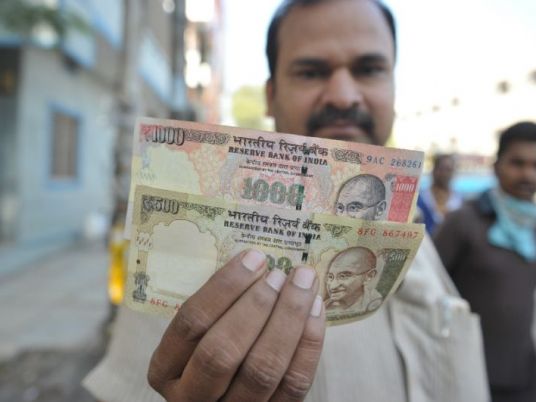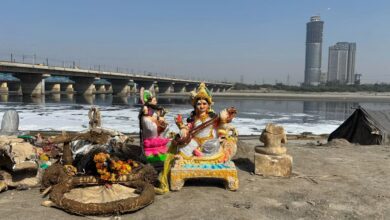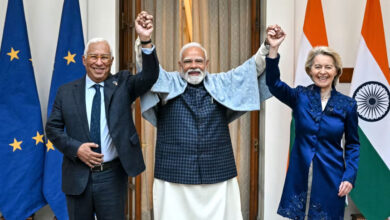
India's government tried to quell the panic Wednesday caused by a bombshell decision to withdraw 500 and 1,000 rupee notes from circulation, that left millions of people stranded without cash.
A day after Prime Minister Narendra Modi announced the notes would no longer be legal tender in a blitz against "black money", his finance minister said replacement 500 and 2,000 rupee bills would be available from Thursday and only tax dodgers stood to lose out from the move.
All banks and cash machines were ordered to close on Wednesday in preparation for the turnaround, triggering a late night rush by customers to withdraw smaller notes from ATMs which soon ran dry.
Customers will be able to exchange their old bills for new notes or deposit them in their accounts but face major scrutiny by tax authorities if they cannot account for a sudden swell in their balance.
"Housewives with small cash savings and farmers have no need to worry. People who withdraw money from the banks have nothing to worry about… All they have to do is exchange it or deposit it in the bank," Finance Minister Arun Jaitley told public television.
"But if you have illegal money, then you have to give its source. If you have criminal money, then you are in serious trouble."
While the move was praised by business leaders and commentators, Indian stocks fell by over six percent in early trade before staging a recovery and finishing only 1.23 percent lower than Wednesday's close.
Writing on Twitter, Modi said his announcement was "a historic step to fight corruption (and) black money" that would "give an impetus to growth".
But Sujan Hajra, an economist at the Mumbai-based brokerage firm Anand Rathi Securities, said consumer spending would initially take a hit.
"The government's demonetisation scheme will affect consumption across India as people won't have enough cash to conduct major transactions for the next few days," Hajra told AFP.
Major queues built up outside cash machines on Tuesday evening ahead of the midnight close as customers tried to withdraw 100 rupee bills.
The 500 and 1,000 notes, worth around $7.50 and $15, are the largest bills in India where nearly 90 percent of transactions are conducted in cash, according to the economic research company Capital Economics.
"The person in front of me made a total of 18 transactions on multiple ATM cards," Delhi resident Puneet Raheja told AFP after managing to get some cash just in time.
Foreign travellers were also caught in the chaos, unable to find anyone to change their money into 100 rupee notes.
Luca Alvarez, a Spanish tourist staying at Delhi's Paharganj backpacker neighbourhood, said she only had a wad of 500 and 1,000 notes and money changers had refused to convert her US dollars into 100 rupee notes.
"I have tried at least eight money changers," Alvarez told AFP. "I have got no money to pay for lunch and dinner."
– Caught short –
Somnath Kale, who had travelled to Delhi by train from the southern Indian state of Karnataka, only heard about the announcement on his arrival and said he was now stranded without any cash to his name.
"I was travelling for last 36 hours and I have no idea what to do now," Kale told.
While debit and credit card usage has increased in the last decade, many small businesses only take cash to evade tax or mark up prices to cushion the blow.
Only 2.89 percent of Indians pay any income tax at all, India's previous finance minister told parliament in 2013.
Many of India's wealthiest citizens channel money to tax havens and convert it into jewellery while property deals are frequently done in cash.
Girish Vanvari, a partner at KPMG in India, acknowledged there would be "hardship in the transitory phase" but nevertheless said the overall impact would be beneficial.
"This will eventually ease out black money and corruption in the economy. This will also lead to (a) surge in tax collections as paying taxes will be the only way to legitimise" the 500 or 1,000 notes, he said.
Since coming to power in 2014, Modi has unveiled a series of anti-corruption measures, including 10-year jail terms for tax evaders.
A tax amnesty for Indians to report undeclared income and assets also netted the government nearly $10 billion.




